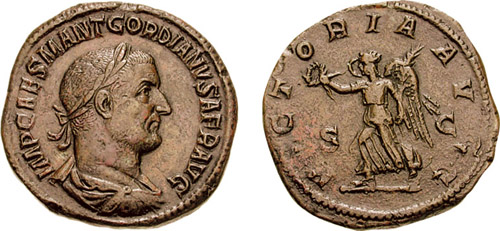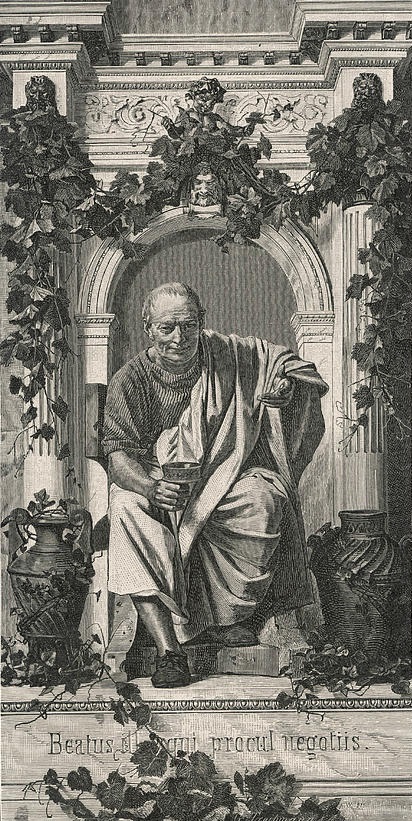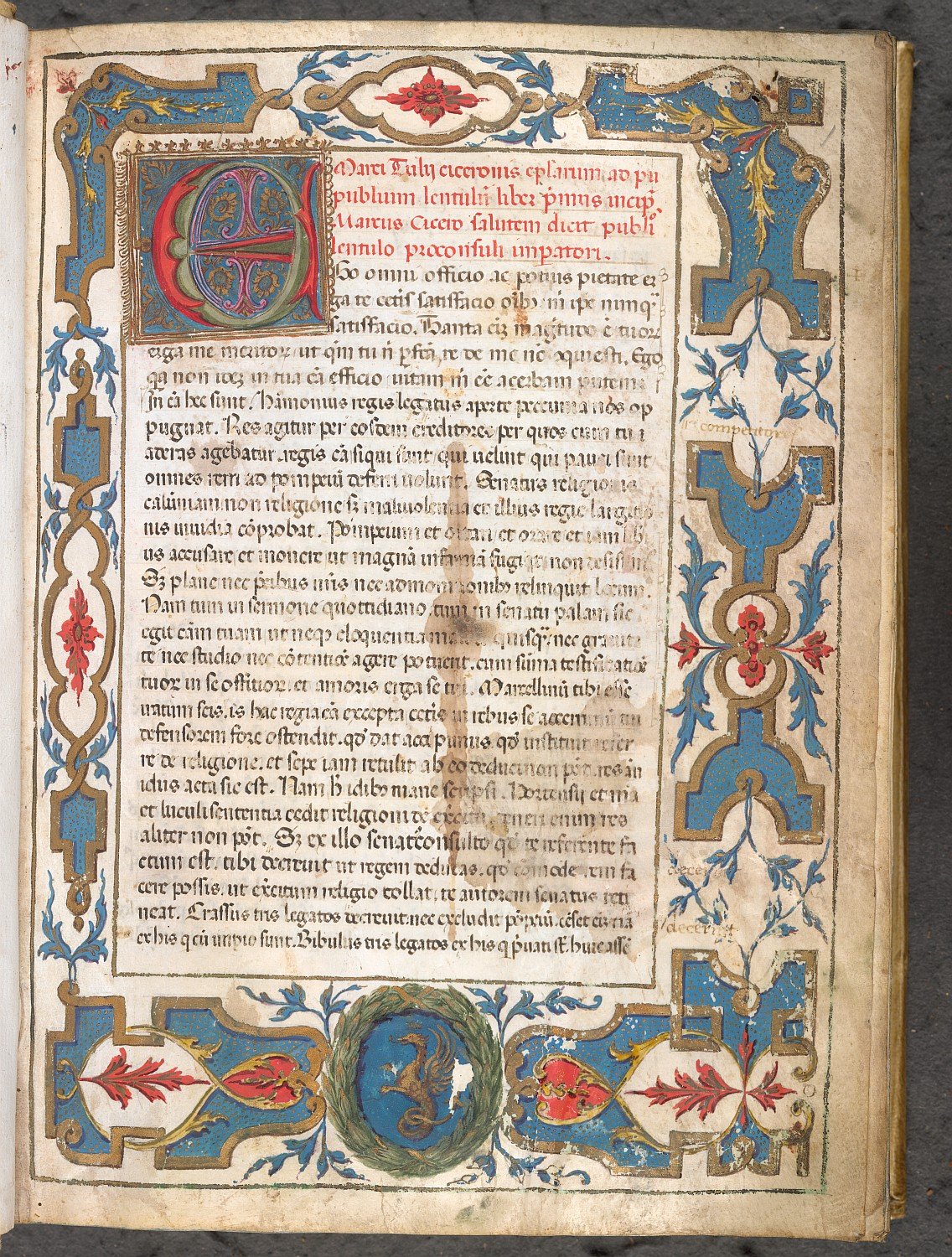|
Maecia Gens
The gens Maecia was a plebeian family at ancient Rome. Members of this gens are rarely mentioned before the time of Cicero, but in Imperial times they rose to prominence, achieving the consulship on at several occasions.''Dictionary of Greek and Roman Biography and Mythology'', vol. II, p. 895 (" Maecia Gens"). Members * Octavius Maecius, according to some accounts, leader of the allied cavalry in 293 BC, during the Third Samnite War. He employed a clever ruse to make his forces appear far more substantial than they in fact were, alarming the Samnite army. * Spurius Maecius Tarpa, a contemporary of Cicero, whom Pompeius hired to select the plays performed at his games in 55 BC. At a later date, Octavian relied on him for his opinion of drama. * Quintus Maecius, a Roman poet, known only from his twelve epigrams in the ''Greek Anthology'', which are some of the finest in the collection. * Marcus Maecius Rufus, proconsul of Bithynia, and consul ''suffectus'' during the reign of Ves ... [...More Info...] [...Related Items...] OR: [Wikipedia] [Google] [Baidu] |
Plebs
In ancient Rome, the plebeians (also called plebs) were the general body of free Roman citizenship, Roman citizens who were not Patrician (ancient Rome), patricians, as determined by the capite censi, census, or in other words "commoners". Both classes were hereditary. Etymology The precise origins of the group and the term are unclear, but may be related to the Greek, ''plēthos'', meaning masses. In Latin, the word is a grammatical number, singular collective noun, and its genitive is . Plebeians were not a monolithic social class. Those who resided in the city and were part of the four urban tribes are sometimes called the , while those who lived in the country and were part of the 31 smaller rural tribes are sometimes differentiated by using the label . (List of Roman tribes) In ancient Rome In the annalistic tradition of Livy and Dionysius of Halicarnassus, Dionysius, the distinction between patricians and plebeians was as old as Rome itself, instituted by Romulus' a ... [...More Info...] [...Related Items...] OR: [Wikipedia] [Google] [Baidu] |
Gordian I
Gordian I ( la, Marcus Antonius Gordianus Sempronianus Romanus; 158 – April 238 AD) was Roman emperor for 22 days with his son Gordian II in 238, the Year of the Six Emperors. Caught up in a rebellion against the Emperor Maximinus Thrax, he was defeated by forces loyal to Maximinus, and he committed suicide after the death of his son. Family and background Little is known about the early life and family background of Gordian I. There is no reliable evidence on his family origins. Gordian I was said to be related to prominent senators of his time. His praenomen and nomen ''Marcus Antonius'' suggested that his paternal ancestors received Roman citizenship under the triumvir Mark Antony, or one of his daughters, during the late Roman Republic. Gordian's cognomen ‘Gordianus’ also indicates that his family origins were from Anatolia, more specifically Galatia or Cappadocia. According to the ''Historia Augusta'', his mother was a Roman woman called Ulpia Gordiana and his fath ... [...More Info...] [...Related Items...] OR: [Wikipedia] [Google] [Baidu] |
Richard François Philippe Brunck
Richard François Philippe Brunck (30 December 1729 – 12 June 1803) was a French people, French classical scholar. Biography Brunck was born in Strasbourg, France, educated at the Jesuits' College in Paris, and took part in the Seven Years' War as military commissary. At the age of thirty he returned to Strasbourg to resume his studies, especially Greek language, Greek. He spent considerable sums of money in publishing editions of the Greek classics. The first work he edited was the ''Anthologia Graeca'' or ''Analecta veterum Poetarum Graecorum'' (1772–1776), in which his innovations on the established mode of criticism startled European scholars. As an editor, he made no commentaries, but occupied himself only with the text. Persuaded that all faults in the language of the Greek poets came from the carelessness of copyists, wherever it seemed to him that an obscure or difficult passage might be made intelligible and easy by a change of text, he did not scruple to make the ne ... [...More Info...] [...Related Items...] OR: [Wikipedia] [Google] [Baidu] |
Johann Albert Fabricius
Johann Albert Fabricius (11 November 1668 – 30 April 1736) was a German classical scholar and bibliographer. Biography Fabricius was born at Leipzig, son of Werner Fabricius, director of music in the church of St. Paul at Leipzig, who was the author of several works, the most important being ''Deliciae Harmonicae'' (1656). The son received his early education from his father, who on his deathbed recommended him to the care of the theologian Valentin Alberti. He studied under J. G. Herrichen, and afterwards at Quedlinburg under Samuel Schmid. It was in Schmid’s library, as he afterwards said, that he found the two books, Kaspar von Barth's compendium ''Adversariorum libri LX'' (1624) and Daniel Georg Morhof's ''Polyhistor'' (1688), which suggested to him the idea of his ''Bibliothecæ'', the kind of works on which his great reputation was ultimately founded. On returning to Leipzig in 1686, he published anonymously two years later his first work, ''Scriptorum recentiorum ... [...More Info...] [...Related Items...] OR: [Wikipedia] [Google] [Baidu] |
Jan Gruter
Jan Gruter or Gruytère, Latinization of names, Latinized as Janus Gruterus (3 December 1560 – 20 September 1627), was a Southern Netherlands, Flemish-born philologist, scholar, and librarian. Life Jan Gruter was born in Antwerp. His father was Wouter Gruter, who was a merchant and city administrator of Antwerp, and his mother was Catharina Tishem from Norwich in England. To avoid religious persecution in the early stages of the Eighty Years' War, his parents emigrated to England while he was a child. For some years he studied at Caius College, Cambridge, after which he went to University of Leiden, Leiden. In 1584 he obtained the degree of Doctor of Law, doctor iuris. He then left the Netherlands and commenced a period of travel that brought him to France, Switzerland, Italy and finally to North and East Germany. His New Latin, neo-Latin poems are published in Heidelberg at this time. In 1590, Gruter was appointed professor of history at the University of Wittenber ... [...More Info...] [...Related Items...] OR: [Wikipedia] [Google] [Baidu] |
Augustan History
The ''Historia Augusta'' (English: ''Augustan History'') is a late Roman collection of biographies, written in Latin, of the Roman emperors, their junior colleagues, designated heirs and usurpers from 117 to 284. Supposedly modeled on the similar work of Suetonius, ''The Twelve Caesars'', it presents itself as a compilation of works by six different authors (collectively known as the ''Scriptores Historiae Augustae''), written during the reigns of Diocletian and Constantine I and addressed to those emperors or other important personages in Ancient Rome. The collection, as extant, comprises thirty biographies, most of which contain the life of a single emperor, but some include a group of two or more, grouped together merely because these emperors were either similar or contemporaneous. The true authorship of the work, its actual date, its reliability and its purpose have long been matters for controversy by historians and scholars ever since Hermann Dessau, in 1889, rejected ... [...More Info...] [...Related Items...] OR: [Wikipedia] [Google] [Baidu] |
Ars Poetica (Horace)
"Ars Poetica", or "The Art of Poetry", is a poem written by Horace c. 19 BC, in which he advises poets on the art of writing poetry and drama. The ''Ars Poetica'' has "exercised a great influence in later ages on European literature, notably on French drama" and has inspired poets and authors since it was written. Although it has been well-known since the Middle Ages, it has been used in literary criticism since the Renaissance. Background The poem was written in hexameter verse as an Epistle (or Letter) to Lucius Calpurnius Piso (the Roman senator and consul) and his two sons, and is sometimes referred to as the ''Epistula ad Pisones'', or "Epistle to the Pisos". The first mention of its name as the ''"Ars Poetica"'' was c. 95 by the classical literary critic Quintilian in his '' Institutio Oratoria'', and since then it has been known by that name. The translations of the original epistle are typically in the form of prose. "Written, like Horace's other epistles of this perio ... [...More Info...] [...Related Items...] OR: [Wikipedia] [Google] [Baidu] |
Satires (Horace)
The ''Satires'' ( la, Satirae or ''Sermones'') is a collection of satirical poems written by the Roman poet Horace. Composed in dactylic hexameters, the ''Satires'' explore the secrets of human happiness and literary perfection. Published probably in 35 BC and at the latest, by 33 BC, the first book of ''Satires'' represents Horace's first published work. It established him as one of the great poetic talents of the Augustan Age. The second book was published in 30 BC as a sequel. In his ''Sermones'' (Latin for "conversations") or ''Satires'' (Latin for "miscellaneous poems"), Horace combines Epicurean, that is, originally Greek, philosophy with Roman good sense to convince his readers of the futility and silliness of their ambitions and desires. As an alternative, he proposes a life that is based on the Greek philosophical ideals of ''autarkeia'' (Greek for "inner self-sufficiency") and ''metriotes'' (Greek for "moderation" or sticking to the Just Mean). In ''S.'' 1.6.110–13 ... [...More Info...] [...Related Items...] OR: [Wikipedia] [Google] [Baidu] |
Horace
Quintus Horatius Flaccus (; 8 December 65 – 27 November 8 BC), known in the English-speaking world as Horace (), was the leading Roman lyric poet during the time of Augustus (also known as Octavian). The rhetorician Quintilian regarded his ''Odes'' as just about the only Latin lyrics worth reading: "He can be lofty sometimes, yet he is also full of charm and grace, versatile in his figures, and felicitously daring in his choice of words."Quintilian 10.1.96. The only other lyrical poet Quintilian thought comparable with Horace was the now obscure poet/metrical theorist, Caesius Bassus (R. Tarrant, ''Ancient Receptions of Horace'', 280) Horace also crafted elegant hexameter verses (''Satires'' and '' Epistles'') and caustic iambic poetry ('' Epodes''). The hexameters are amusing yet serious works, friendly in tone, leading the ancient satirist Persius to comment: "as his friend laughs, Horace slyly puts his finger on his every fault; once let in, he plays about the heartstrin ... [...More Info...] [...Related Items...] OR: [Wikipedia] [Google] [Baidu] |
Epistulae Ad Familiares
''Epistulae ad Familiares'' (''Letters to Friends'') is a collection of letters between Roman politician and orator Marcus Tullius Cicero and various public and private figures. The letters in this collection, together with Cicero's other letters, are considered the most reliable sources of information for the period leading up to the fall of the Roman Republic. Traditionally spanning 16 books, and featuring letters from 62 to 43 BCE, the collection was likely first published by Cicero's freedman and personal secretary Marcus Tullius Tiro sometime after Cicero's death in 43 BCE. A number of manuscript copies of this collection have reached modern times. The earliest witness to the text is a palimpsest on a single leaf, written in uncials of the fifth or sixth century ( CLA IV.443; it contains portions of letters 6.9 and 6.10. Two more fragments from 12th-century manuscripts – the outer bifolium of an eight-sheet gathering containing 2.1.1–2.17.4, and a single leaf co ... [...More Info...] [...Related Items...] OR: [Wikipedia] [Google] [Baidu] |
List Of Roman Gentes
The gens (plural gentes) was a Roman family, of Italic or Etruscan origins, consisting of all those individuals who shared the same '' nomen'' and claimed descent from a common ancestor. It was an important social and legal structure in early Roman history.'' Harper's Dictionary of Classical Literature and Antiquities'', Second Edition, Harry Thurston Peck, Editor (1897)'' Oxford Classical Dictionary'', 2nd Ed. (1970) The distinguishing characteristic of a gens was the , or ''gentile name''. Every member of a gens, whether by birth or adoption, bore this name. All nomina were based on other nouns, such as personal names, occupations, physical characteristics or behaviors, or locations. Consequently, most of them ended with the adjectival termination ''-ius'' (''-ia'' in the feminine form). Nomina ending in , , , and are typical of Latin families. Faliscan gentes frequently had nomina ending in ''-ios'', while Samnite and other Oscan-speaking peoples of southern Italy h ... [...More Info...] [...Related Items...] OR: [Wikipedia] [Google] [Baidu] |
Rufius Achilius Maecius Placidus
The gens Rufia, occasionally spelled Ruffia, was a minor plebeian family at ancient Rome. Members of this gens are not mentioned in history until imperial times, and they achieved little prominence until the late third century, from which time the family rose in importance, gaining the consulship on a number of occasions from the time of Constantine the Great to that of Justinian, and frequently holding the post of . Origin The nomen ''Rufius'' is derived from the common Latin surname , red, originally given to someone with red hair. It is frequently confounded with '' Rufrius'', presumably from the related , reddish or ruddy. Chase classifies ''Rufius'' among those gentilicia that either originated at Rome, or cannot be shown to have come from anywhere else. Branches and cognomina The Rufii used a variety of personal cognomina, which was typical of Roman nomenclature in imperial times. The only distinct family name seems to have been ''Festus'', joyous or festive, which ap ... [...More Info...] [...Related Items...] OR: [Wikipedia] [Google] [Baidu] |




